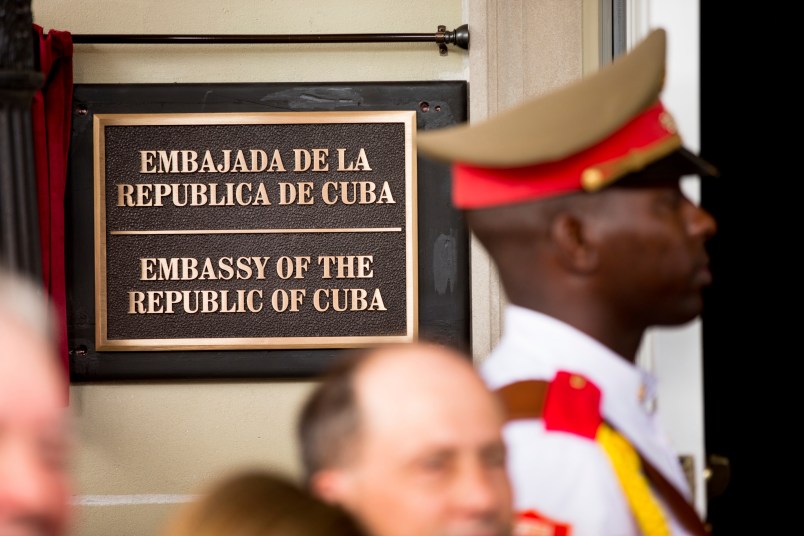WASHINGTON (AP) — The Canadian government said Thursday that at least one Canadian diplomat in Cuba also has been treated for hearing loss following disclosures that a group of American diplomats in Havana suffered severe hearing loss that U.S. officials believe was caused by an advanced sonic device.
Global Affairs Canada spokeswoman Brianne Maxwell said Canadian officials “are aware of unusual symptoms affecting Canadian and US diplomatic personnel and their families in Havana. The government is actively working — including with US and Cuban authorities – to ascertain the cause.”
Maxwell added that officials don’t have any reason to believe Canadian tourists and other visitors could be affected.
Canada helped broker talks between Cuba and the United States that led to restored diplomatic relations.
In the fall of 2016, a series of U.S. diplomats began suffering unexplained losses of hearing, according to officials with knowledge of the investigation into the case. Several of the diplomats were recent arrivals at the embassy, which reopened in 2015 as part of President Barack Obama’s reestablishment of diplomatic relations with Cuba.
Some of the U.S. diplomats’ symptoms were so severe that they were forced to cancel their tours early and return to the United States, officials said. After months of investigation, U.S. officials concluded that the diplomats had been attacked with an advanced sonic weapon that operated outside the range of audible sound and had been deployed either inside or outside their residences.
It was not immediately clear if the device was a weapon used in a deliberate attack, or had some other purpose.
The U.S. officials weren’t authorized to discuss the investigation publicly and spoke on condition of anonymity.
State Department spokeswoman Heather Nauert said the U.S. retaliated by expelling two Cuban diplomats from their embassy in Washington on May 23. She did not say how many U.S. diplomats were affected or confirm they had suffered hearing loss, saying only that they had “a variety of physical symptoms.”
The Cuban government said in a lengthy statement late Wednesday that “Cuba has never permitted, nor will permit, that Cuban territory be used for any action against accredited diplomatic officials or their families, with no exception.”
The statement from the Cuban Foreign Ministry said it had been informed of the incidents on Feb. 17 and had launched an “exhaustive, high-priority, urgent investigation at the behest of the highest level of the Cuban government.”
It said the decision to expel two Cuban diplomats was “unjustified and baseless.”
The ministry said it had created an expert committee to analyze the incidents and had reinforced security around the U.S. embassy and U.S. diplomatic residences.
“Cuba is universally considered a safe destination for visitors and foreign diplomats, including U.S. citizens,” the statement said.
U.S. officials told The Associated Press that about five diplomats, several with spouses, had been affected and that no children had been involved. The FBI and Diplomatic Security Service are investigating.
Cuba employs a state security apparatus that keeps many people under surveillance and U.S. diplomats are among the most closely monitored people on the island. Like virtually all foreign diplomats in Cuba, the victims of the incidents lived in housing owned and maintained by the Cuban government.
However, officials familiar with the probe said investigators were looking into the possibilities that the incidents were carried out by a third country such as Russia, possibly operating without the knowledge of Cuba’s formal chain of command.
Nauert said investigators did not yet have a definitive explanation for the incidents but stressed they take them “very seriously,” as shown by the Cuban diplomats’ expulsions.
“We requested their departure as a reciprocal measure since some U.S. personnel’s assignments in Havana had to be curtailed due to these incidents,” she said. “Under the Vienna Convention, Cuba has an obligation to take measures to protect diplomats.”
U.S. diplomats in Cuba said they suffered occasional harassment for years after the restoration of limited ties with the communist government in the 1970s, harassment reciprocated by U.S. agents against Cuban diplomats in Washington. The use of sonic devices to intentionally harm diplomats would be unprecedented.



